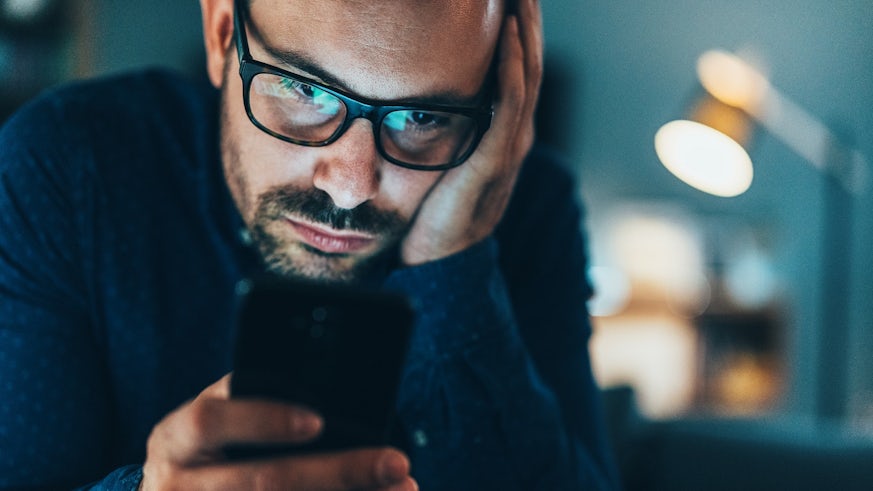How are people with OCD coping during the COVID-19 pandemic?
25 June 2020

A Cardiff University lecturer is leading a project to investigate the impact the COVID-19 pandemic is having on people with obsessive-compulsive traits or a history of OCD.
And it’s a particularly personal endeavour for Dr Athanasios Hassoulas, director of the MSc in Psychiatry, because he himself has OCD and has spent his early career researching the condition.
He worries the current global health crisis could be having a hugely negative effect on those with the condition and the care and support they are receiving.
OCD – obsessive-compulsive disorder – is an umbrella term to describe several different types of disorder in which a person feels the need to perform certain routines repeatedly (compulsions) and/or has certain recurring thoughts (obsessions). Around 1-3% of the UK population has OCD, with a similar prevalence globally.
“This could be a really challenging period for many people who have OCD or obsessive-compulsive traits,” said Dr Hassoulas, from the School of Medicine.
“OCD can be a very debilitating and distressing disorder even during normal times but during a pandemic the level of anxiety and worry being felt may become overwhelming.
“For many what tends to drive their OCD is recurring unpleasant thoughts, such as guilt and concern that their actions could cause harm to others or anxiety over contamination. They know these thoughts are irrational but the only way to find relief is by acting out a compulsion.
“During a pandemic these thoughts are likely to be heightened and coupled with the daily messaging about risks this might mean that compulsions, such as hand washing or disinfecting particular areas, could become out of control.

We all know about the physical impacts of coronavirus - it’s also vital that we are aware of the psychological impacts too, particularly for more vulnerable groups.
Dr Hassoulas was diagnosed with OCD as a teenager when his parents sensed something was not quite right.
“I was about 15 years old and I remember having these very intrusive thoughts,” he said.
“As opposed to acting out a physical compulsion, I spent a lot of time trying to neutralise one thought with another thought. I had to focus very hard on these positive thoughts and only then would some relief come.
“I was very lucky because thanks to my family I got the help I needed. I worry that others are not so fortunate. I primarily felt I wanted to research OCD to understand how my own brain works but ultimately I want to know what drives many people to feel this way.
“My OCD hasn’t gone away but it has evolved. I tend to describe it as sneaky - it changes over the years and I have to try and stay one step ahead of it.”
Treatment and support for those with OCD depends on the severity and can vary from cognitive behavioural therapy (CBT) which looks at what is driving thoughts or behaviour in more mild cases, to drug treatments for those more severely affected.
Dr Hassoulas is worried people may not be getting the support they need and those yet to be diagnosed could face delays because the process involves a GP referral to a psychiatric team.
“CBT can be done remotely but it could be harder to engage people when they arguably need help and support more than ever. And given the disruption to GP and psychiatric services there will no doubt be a knock-on effect,” he said.
“At the moment we don’t know what impact the pandemic is having on individuals with OCD, or if they are getting the treatment or support they should be.
“I hope this research will help us better understand how people are coping - and help us to offer better tailored support that can be delivered remotely.”
Dr Hassoulas also hopes that by talking about his OCD the public can get a better understanding of the condition.
“People make jokes and can be quite flippant but the World Health Organization describes OCD as one of the most debilitating psychiatric conditions in terms of the impact on people’s lives and on their finances and relationships,” he said.
“The urge to perform particular rituals to provide relief can be absolutely overwhelming - it can be a very distressing condition.”
Participants in the research are being asked to fill out an online survey about how the pandemic has affected their daily lives - the actions they are taking and level of anxiety they feel and how they feel any treatment or support has been affected.
Share this story
The School is a major international centre for teaching and research, and committed to the pursuit of improved human health.




